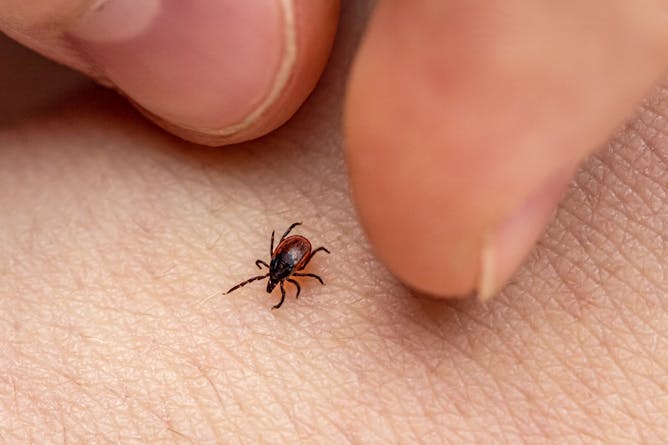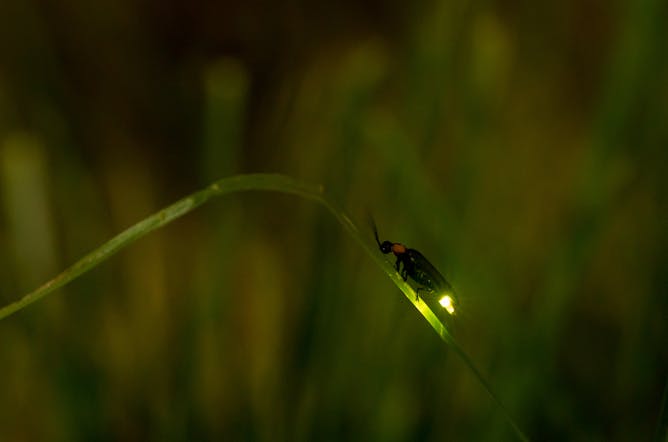|
There’s something about a sad song that draws us in and makes our hearts swell. We reach for them in all emotional states and enjoy them despite their weepy themes. As Adele releases her new album, 30, which includes some deliciously melancholy tracks, Simon McCarthy-Jones explores the science behind why they make us feel good.
MRNA vaccines for COVID-19 have had a profound effect during the COVID pandemic. Now the basic mRNA vaccine technology is being explored for a number of infectious diseases. Scientist Andaleeb Sajid writes about an experiment she worked on that showed promising results in providing immunity against tick-borne diseases. In this case, the mRNA vaccine is designed to teach the immune system to recognize the saliva of ticks rather than the pathogen itself.
|

Adele/Youtube
Simon McCarthy-Jones, Trinity College Dublin
It may seem odd that we get pleasure from sad songs.
|

As the rate of tick-borne diseases rises, vaccines that stop ticks in their tracks could be an essential preventive tool.
rbkomar/Moment via Getty Images
Andaleeb Sajid, National Institutes of Health
The study found that ticks were unable to feed on guinea pigs vaccinated with an mRNA vaccine, preventing transmission of the pathogen that causes Lyme disease.
|
|
|
-
Daniel Parsons, University of Hull; Martin Taylor, University of Hull
Rich countries like the UK have almost left coal power behind, but it’s not as easy for developing countries.
-
Sanya Osha, University of Cape Town
Nigeria’s current political problems are simply too daunting to embark on an honest journey to true federalism at this stage.
-
Frank Gerits, Utrecht University
Macron’s approach to Africa policy emulates the 1950’s strategies. Why? A big part of the answer can be found in the fact that today’s global circumstances are similar to those of post-World War II.
-
John Gaventa, Institute of Development Studies
The focus on building democracy should be on more intermediary outcomes, which can serve as building blocks for longer term democratic renewal.
-
Mark Greeven, International Institute for Management Development (IMD)
The Chinese manufacturing boom has been followed by a rapid growth in retail..
|
|

anko70/Shutterstock
Alessondra T Speidel, Karolinska Institutet
Luciferase is a useful tool in medicine and has nothing to do with Satan.
|

Richard Wainwright/AAP
Jack Feehan, Victoria University; Vasso Apostolopoulos, Victoria University
A vaccinated person is less likely to get COVID, is less contagious, and is contagious for a shorter time.
|